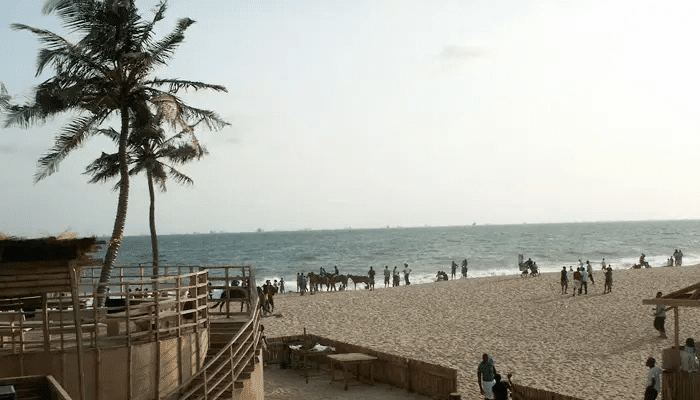Nigeria
Owners of illegal structures in Lekki have been given a 7-day ultimatum by the Lagos government

Owners of properties on Orchid Road, Agungi, Ajiran, Conservation Road, and Osapa that are near the Ikota River have received a seven-day infringement notice from the Lagos State Government.
The director of public relations for the ministry of the environment and water resources in Lagos State, Kunle Adesina, announced this on Monday via a statement posted on the X platform (formerly Twitter).
The announcement was made, according to Adesina, by Special Adviser on the Environment Olakunle Rotimi-Akodu and Commissioner Tokunbo Wahab after a comprehensive inspection trip of the Ikota River corridor.
The goal of the inspection tour, according to him, was to ascertain how compliant property owners who have fences and buildings inside the allowed seven-meter buffer on either side of the channel are.
Wahab urged residents of Lagos to abide by the state drainage master plan in order to prevent property destruction.
He emphasised that the state’s choice to enforce the law and recover drainage setbacks after the notices given expired could not be reversed.
The commissioner stated that the Nigerian Conservation Foundation had previously filed a petition claiming that numerous distortions had occurred on their roadways.
He said that the drainage channel on Orchid Road, which was intended to transport runoff from the communities into the Lagoon, had sustained significant damage as a result of the deformation, which also affected the animals’ natural habitat in the foundation.
After speaking with property owners to minimise the number of damaged structures, he said Lagos State had reduced the setback alignment from seven to six metres, demonstrating its compassionate attitude to reclaiming the drainage right of way.
“We cannot keep lampooning the government for flooding when the main causes of flooding are developers, builders, and residents,” the statement said.
“We will not stop enforcing laws as that is their intended purpose. Development is impossible without law and order; enough of this inappropriate behavior.”
“The commissioner and his team also went to Oral Estate II along system 156 Igbo Efon, where they discovered that unlawful buildings built without drainage clearances had completely blocked the main channel.
Additionally, the commissioner visited Agungi, Ajiran, and Osapa, where notifications had already been given. There, he said, final decisions would be taken following an assessment of the extent of encroachment on the areas’ principal channel and secondary collector setbacks.
He clarified that the commissioner had seen that residents and property owners along the corridor had lowered the System 156 Ikota River channel setback, which had originally been 46 metres.
Wahab also proceeded to Chevron Drive, where he gave Gravitas, the proprietors of Grace Ville Island and Pocket Island, a stop work order for sand-filling a portion of the Ikota River, so shrinking the lagoon from its original 250 metres, which were intended to permit unrestricted water flow.
“People have begun reclaiming land to cover up and narrow the lagoon, which is a natural path. If you narrow the water’s path, it will naturally create another path, which is dangerous for everyone,” Wahab stated.
According to Adesina, the commissioner oversaw the demolition of shanties on Thompson Avenue earlier in the day in response to complaints from locals that strange faces and women with easy charms were frequently lining the streets at night, posing a security risk to the entire state and the Ikoyi neighbourhood in particular.
“We arrived at the site at six this morning, and what we saw was unbelievable. We had to remove these illegal structures, evacuate, make some arrests, and file charges against them. By tomorrow, we will own the entire property,” Wahab stated.
According to him, the special adviser on the environment mentioned that Lagos had managed to survive due to a number of government initiatives, despite its unique characteristics as a coastal state with low-lying topography, a dense population, and other factors.
